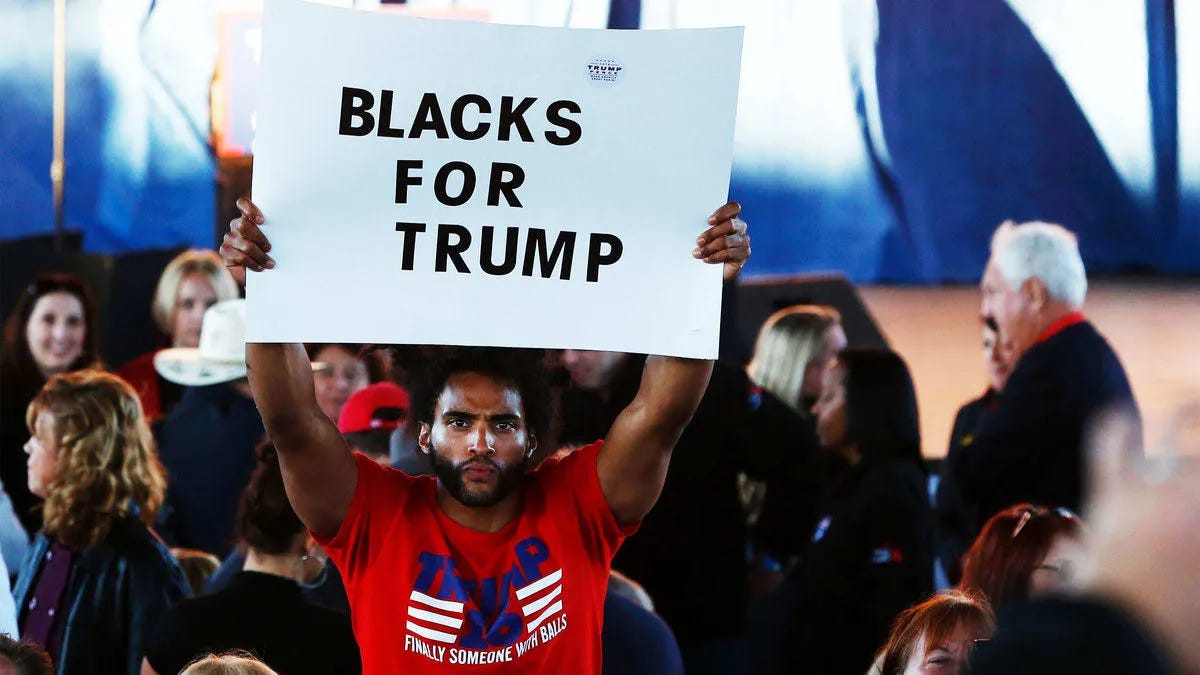Beyond Party Lines: The Need for a Unified Black Vote
Why Black Americans Must Look Beyond the Two-Party System
For over fifty years, the vast majority of the Black community has consistently voted for the Democratic Party. The Civil Rights Act of 1964 marked a significant turning point, earning Democrats the steadfast support of Black Americans. President Lyndon B. Johnson secured 94 percent of the Black vote after championing the Act. However, a growing number of Black Americans are becoming disillusioned with the party, leading to a decline in party loyalty.
Baby boomers and Gen X are firmly committed to the two-party system, while Millennials and Gen Z are beginning to diverge from this political tradition. Over the past three years, the Democratic Party's substantial lead among Black voters has diminished by nearly 20 points, while support for Trump is up 19 points from 2020. Many black voters feel ignored and unseen by the Biden administration. Footage Here:
The Democratic Party has offered African Americans mere crumbs of political and legislative support, expecting Black people to advance at their prescribed pace. Conversely, the Republican Party, once known as the party of Lincoln and emancipation, has evolved into a party that many perceive as neglectful, and even hostile, to the needs of Black Americans.
Dr. Martin Luther King Jr. captured this profound truth when he remarked in his “Letter from Birmingham Jail”, “I have almost reached the regrettable conclusion that the Negro’s great stumbling block in the stride toward freedom is not the White Citizens Councilor or the Ku Klux Klanner but the White moderate who is more devoted to ‘order’ than to justice.
So, as billions of taxpayer dollars go to Ukraine and Israel, and hundreds of millions are allocated towards asylum seekers, Black Americans are asking, "What about us?" With frustration growing towards the Democratic Party, some are looking to the Republican Party for new solutions. I’m all here for Black Americans moving away from the Democratic party but understand Trump and the Republicans are not the answer.
The reality is that neither the Republican nor Democratic parties truly serve the interests of Black people. They have failed to fully address the systemic issues facing Black communities. To break this cycle, we must consider alternatives that go beyond the traditional Republican-Democrat dichotomy. This involves supporting third-party candidates, building new political movements, and endorsing independent candidates who are devoted to addressing the concerns of black people.
Both parties have shown a pattern of exploiting the Black vote during election cycles, only to deprioritize Black issues once in power. The problem lies in the structural nature of bipartisan politics, which inherently limits the policy choices and voices that can emerge. By voting within this system, Black Americans are often forced to choose the "lesser of two evils" rather than candidates and policies that truly represent our interests.
When Black Americans organize and vote as a unified group, we wield immense political power. The 2008 and 2012 presidential elections showcased this potential, with historic voter turnout among Black Americans playing a crucial role in electing Barack Obama. Similarly, in the 2020 election, Black voters in key states were pivotal in securing Joe Biden's victory.
Further, our collective power should not be taken for granted or automatically aligned with any political party. Instead, it should be used to hold politicians accountable and ensure that the needs of Black people are prioritized in policy discussions. By moving away from blind loyalty to either major party and focusing on a unified agenda.
By voting as a bloc, we can:
Demand Accountability: Politicians must address our specific needs and concerns, not just throw out promises.
Increase Bargaining Power: A unified Black vote would make it clear that support is conditional on tangible policy commitments and actions.
Promote Independent Candidates: We must back independent or third-party candidates who truly represent our interests, breaking free from the two-party system.
Advance Policy Changes: By prioritizing on policy over party loyalty and individual personalities, the community can push for legislation that addresses our problems.
By coming together and voting as a unified bloc, the community can reclaim its political influence and drive significant change. It is through unity and strategic action that we ensure our voices are not just heard but heeded in the corridors of power.






Well written and timely piece. Thanks.-